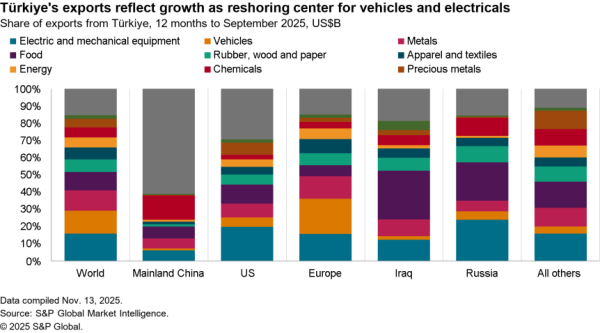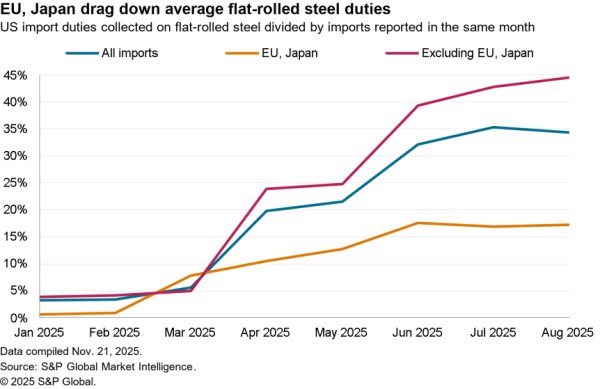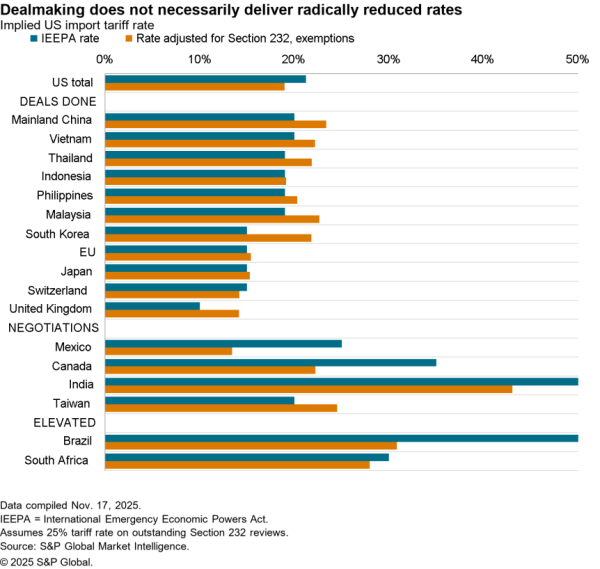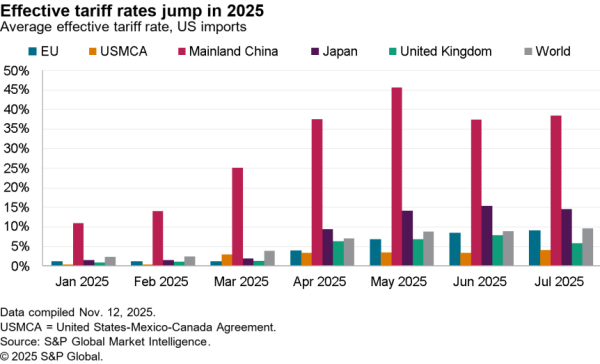The governments of the U.S., Canada and Mexico have reached an agreement to remove bilateral tariffs relating to the U.S. section 232 investigation of the steel and aluminum industries. As outlined in Panjiva’s May 8 report these had been a major stumbling block to the ratification of the USMCA trade deal in all three countries.
The removal of a specific hurdle does not mean its ratification is guaranteed though – elections loom in Canada while U.S. Democrats remain concerned about the enforceability of labor guarantees and the impact of protections for biologic drugs.
The main beneficiaries of the removal of tariffs in the near-term will be the companies that had been subject to retaliatory duties. In the case of Mexico these covered a mixture of metals and non-metals products where imports fell 8.7% year over year, or $94 million in the three months to Mar. 31, Panjiva data shows. By comparison Mexican exports of steel and aluminum to the U.S. dropped 9.5%, or by $75 million over the same period.

Source: Panjiva
Among the Mexican imports targeted for retaliatory duties imports of metals did worse than non-metals, which were dominated by agricultural produce.
Imports of non-metals products dropped 18.7% while imports of steel and aluminum actually increased by 8.8%. Among the major non-metals lines there was a 26.7% slump in shipments of meat (mostly pork), a 17.8% slide in fruit exports (especially apples) an a 14.3% decline in cheese deliveries. Prepared foods by contrast actually improved by 5.7%.

Source: Panjiva
Resolving the decline in pork shipments may have been particularly pressing for the Trump administration given ongoing pressure on the U.S. meat export industry resulting from the trade war with China.
Among the leading U.S. exporters of pork to Mexico the impact of duties has been particularly hard for Swift Pork, the largest shipper in the 12 months to Mar. 31 with $210 million of exports, which saw a 31.9% year over year drop in 1Q.
Similarly third-placed Tyson’s shipments dropped 32.4%. Not all exporters have faced the same problems though – Seaboard Corp‘s imports slipped by just 0.3%, leaving it as the second largest shipper with $164 million of exports.

Source: Panjiva




